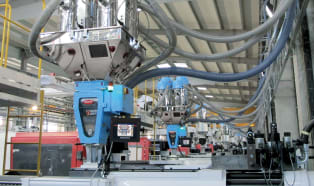
A new era for Moretto DGM Gravix dosing units: Innovation serving the plastics industry
Moretto offers a wide and complete range of intelligent dosing solutions that serves optimizing the production process, enabling higher levels of efficiency and quality.













